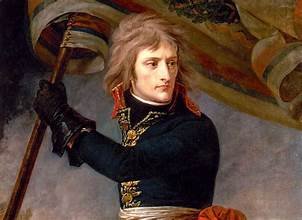Napoleon Bonaparte, an enigmatic figure in history, has captured the imagination of cinema for over a century, with more than 100 screen incarnations delving into his complex life and legacy. From the pioneering works of the Lumière brothers in 1897 to Ridley Scott’s recent portrayal, the cinematic journey through Napoleon’s story has been both diverse and expansive.
The fascination began early on, with Abel Gance’s monumental 1927 film, which focused on Napoleon’s rise and victorious campaign in Italy. Gance’s original plan encompassed a series of six films, yet it culminated in a seven-hour epic that gained mythic status, currently undergoing restoration for a 2024 release.
Throughout cinematic history, Napoleon has often been portrayed in multifaceted ways, ranging from a fish-out-of-water comic character to a strategic genius and even a soap opera star. Longstanding myths surrounding him have been played for laughs, showcasing his presence in pop culture beyond historical accuracy.
However, Ridley Scott’s recent take on Napoleon offers a distinct portrayal, blending meticulous world-building and visceral combat scenes with a more convoluted and multifaceted version of the Emperor. Assisted by impressive CGI effects and Joaquin Phoenix’s portrayal, this rendition presents a mix of strategic insight and vulnerability.
Scott’s film traces 30 years of French history, encompassing Napoleon’s triumphs, innovations, and eventual downfall. While his focus on strategic elements and geopolitical rivalries stands out, the portrayal of Napoleon’s relationship with Josephine is critiqued for its awkward comedic tone, diverting from the film’s strength.
Despite mixed reviews, Scott’s emphasis on visual panache and spectacle echoes his directorial style, evident from his earlier works like Alien and Blade Runner. Epic recreations of historical events and precise cinematography highlight key moments in Napoleon’s life, leaving an indelible mark on the portrayal of this historical figure.
Looking ahead, the debate lingers on whether Scott’s rendition will become the definitive portrayal. Hollywood’s enduring fascination with Napoleon continues, with plans for future adaptations, including Steven Spielberg’s HBO mini-series based on a Stanley Kubrick screenplay.
Napoleon, the embodiment of genius, charisma, and the ultimate “comeback” story, remains an evergreen subject for filmmakers. Much like the conqueror himself, Ridley Scott, now turning to Ancient Rome in the sequel to Gladiator, continues his cinematic journey, leaving a legacy akin to Napoleon’s indelible mark on history.









